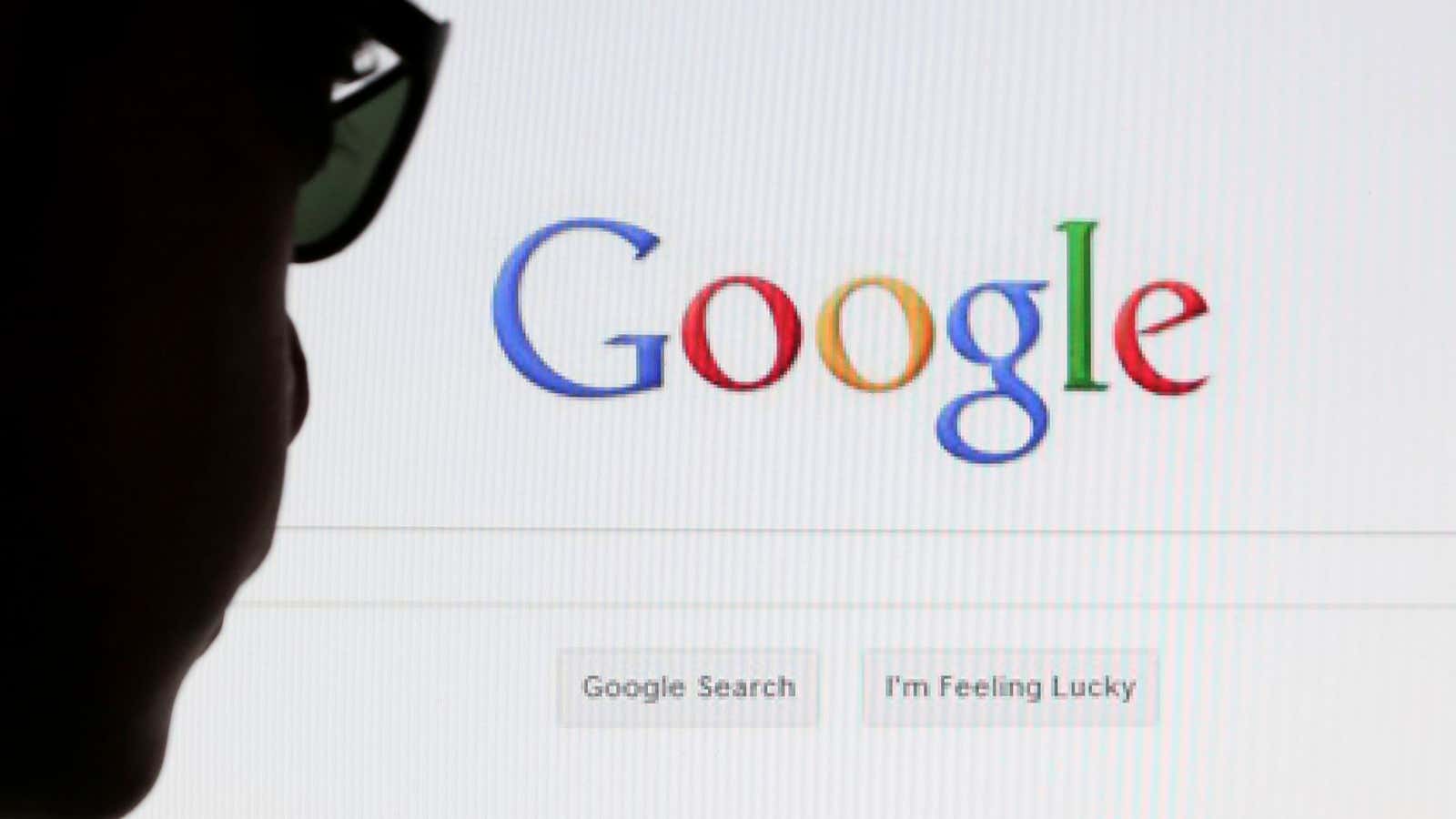Gathering information is easier than it’s been at any other time in human history, thanks to the internet. And much has been written in the past several years about how the panoply of facts now at our fingertips effects how we think. It’s making us smarter, or maybe dumber, or perhaps some of both.
A new study (pdf) in the Journal of Experimental Psychology examines something slightly different: how searching the internet affects how we perceive our own knowledge about a topic.
The researchers, a team of psychologists at Yale, asked participants in the study to research and answer a series of straightforward questions. (For example, “How does a zipper work?) Each participant either used online search engines to find the answers, or directly received text that addressed the question.
Subjects were then asked to rate their own ability to answer other, unrelated questions. The people who had used search engines to look up the answers in the first part of the experiment rated their abilities higher than the people who were given text. In other words, the act of searching the internet made people believe they knew more about everything.
What gives? It may be that because searching the internet allows knowledge to be accessed with so little effort, it confuses people into subconsciously believing they already knew what they had learned. In contrast, offline research such as searching through a book requires more effort, creating a sharper distinction between what is and is not known.
“If you don’t know the answer to a question, it’s very apparent to you that you don’t know, and it takes time and effort to find the answer,” Matthew Fischer, one of the researchers, told the American Psychological Association. ”With the internet, the lines become blurry between what you know and what you think you know.”




